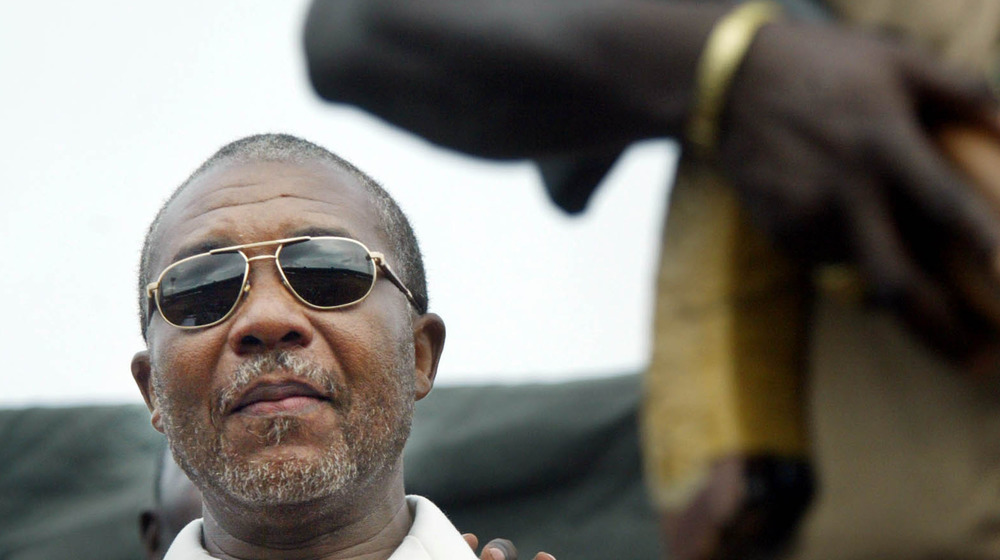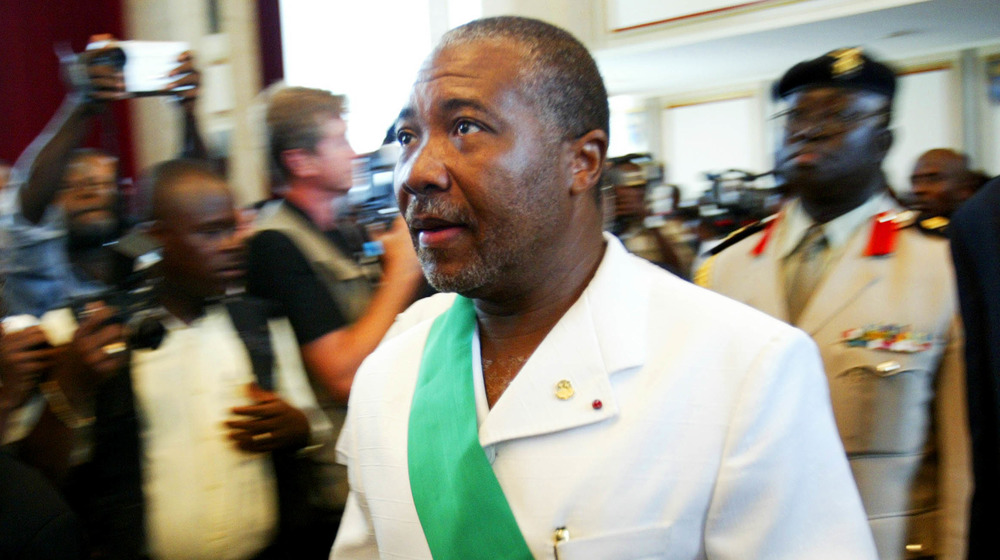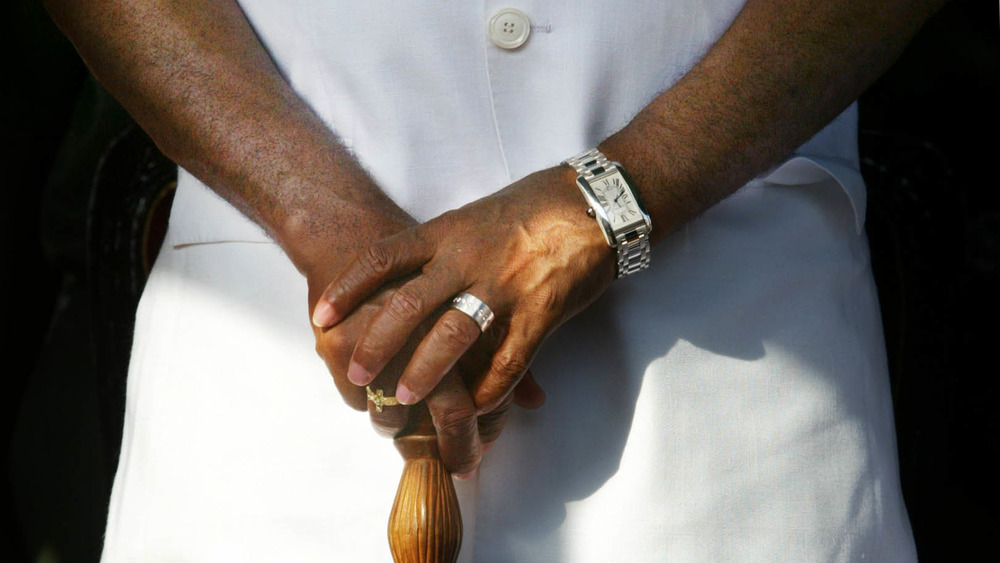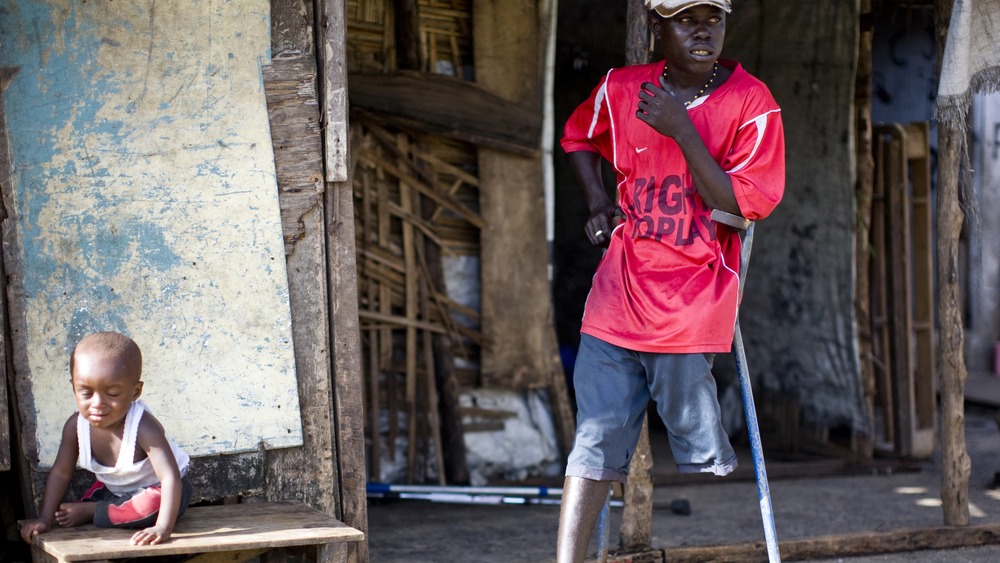The President Of Liberia Who Was Indicted For Crimes Against Humanity
Since 2013, Charles Taylor, former president of Liberia and, as CNN reports, the first former head of state since WWII to be convicted of war crimes, has been imprisoned in the UK, serving a 50-year sentence. It's an ignoble end to a political career that had begun more than 30 years prior and would change the course of African history in countless ways. Despite Taylor's assertion at his sentencing that he was "no threat to society," the tens of thousands of lives lost or destroyed by his actions reflect a very different reality.
To understand the rise and fall of Charles Taylor, it's important to first understand his country's unique place among African nations. Located on the west coast of Africa and slightly larger than the state of Tennessee, Liberia's beginnings can be traced back to 1821, where an unlikely alliance of Quakers and slave owners wished to "repatriate" freeborn Blacks and those formerly enslaved to Africa, relates Britannica. The repatriation program began in 1822 and, by 1824, a small colony had been established and officially renamed the Republic of Liberia.
Over the next century, waves of new settlers from America and elsewhere moved in, claiming land and creating a two-tiered society that, per PBS, evoked the Southern plantation system. By the late-20th-Century, tensions in Liberia were high and, in 1980, a soldier named Samuel K. Doe successfully led a coup that ousted the sitting president and claimed power for himself.
From idealism to embezzlement
Charles Taylor was born in Liberia in 1948 and later became part of a wave of young Liberians to move to the US for education. Taylor arrived in Massachusetts in 1972 to study at Bentley College, where he went on to earn a degree in economics. According to ProPublica, Taylor had been one of many educated Liberians in the States at that time who were actively calling for change in their homeland. After Doe's successful coup in 1980, it appeared to many that change might be possible and Taylor seized the opportunity.
Taylor was appointed by Doe as head of the General Services Agency, where he was in charge of purchasing for the Liberian government. He held that post until 1983 when, per Al Jazeera, he was accused of embezzling $900,00. Faced with arrest, Taylor fled to the United States, but he was nevertheless arrested and charged. Jailed in Massachusetts pending extradition, Taylor somehow managed to escape from the Plymouth House of Corrections in 1985. Though how he was able to flee remains a mystery, there's long been speculation that Taylor received help from the CIA (a claim Taylor has been proud to promote, according to Foreign Policy Insider).
A first glimpse of Taylor's ruthlessness
Taylor escaped first to Mexico, and then Libya, where, says Pro Publica, he received training at a military camp established by Libyan President Colonel Moammar Gadhafi. It was here that Taylor trained his army and bided his time, waiting for an opportune moment to overthrow the increasingly unpopular Doe.
Taylor launched his coup in 1989. The resulting battles and protracted in-fighting between various factions led to a long and bloody Civil War that raged across Liberia until 1996. Taylor's attempt at revolution had originally been ignored on the world stage, and Doe meanwhile appeared to dramatically mismanage his response — deploying soldiers who ruthlessly murdered civilians, per ProPublica. Meanwhile, Taylor's army grew by the thousands, including children. This "Small Boys Unit" required a bloody fealty, with recruits sometimes required to kill their own parents.
By the end of the prolonged war, more than 150,000 Liberians had died. Following a 1995 peace agreement between Taylor and Doe, Charles Taylor was elected President in a special election in 1997.
The Liberian president's crimes against humanity
Taylor was elected with more than 75 percent of the vote, which appeared to be a mandate. Critics attributed much of his success at the polls, however, to financial handouts in exchange for votes (per Britannica). Despite finally achieving his long-held desire to run the country, Taylor still appeared to fixate on those who opposed him and stocked his cabinet with former militia members who'd fought on his behalf.
Eventually, Taylor began selling arms to rebels in neighboring Sierra Leone. These rebels, known as the Revolutionary United Front, led a civil war in Sierra Leone that perpetrated heinous violence across that country, and more than 50,000 would go dead or missing. Thousands more lost limbs due to the brutal violence, and countless people suffered sexual assaults. This was not, however, how Charles Taylor saw it. According to CNN, as Taylor stood before the international court in The Hague, he claimed, "What I did to bring peace to Sierra Leone was done with honor."
The court did not agree, nor did witness after witness, who testified to the atrocities they'd suffered at the hands of the rebels. Ultimately, Taylor was convicted of 11 counts of aiding and abetting the rebel forces responsible for so much violence and pain in Sierra Leone. According to The Atlantic, when news of Taylor's verdict reached Sierra Leone, "crowds cheered."



